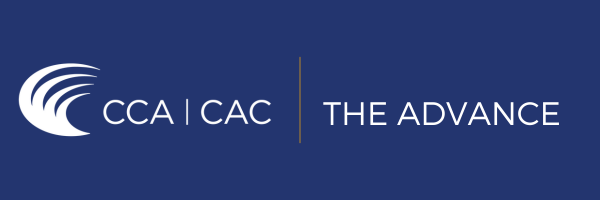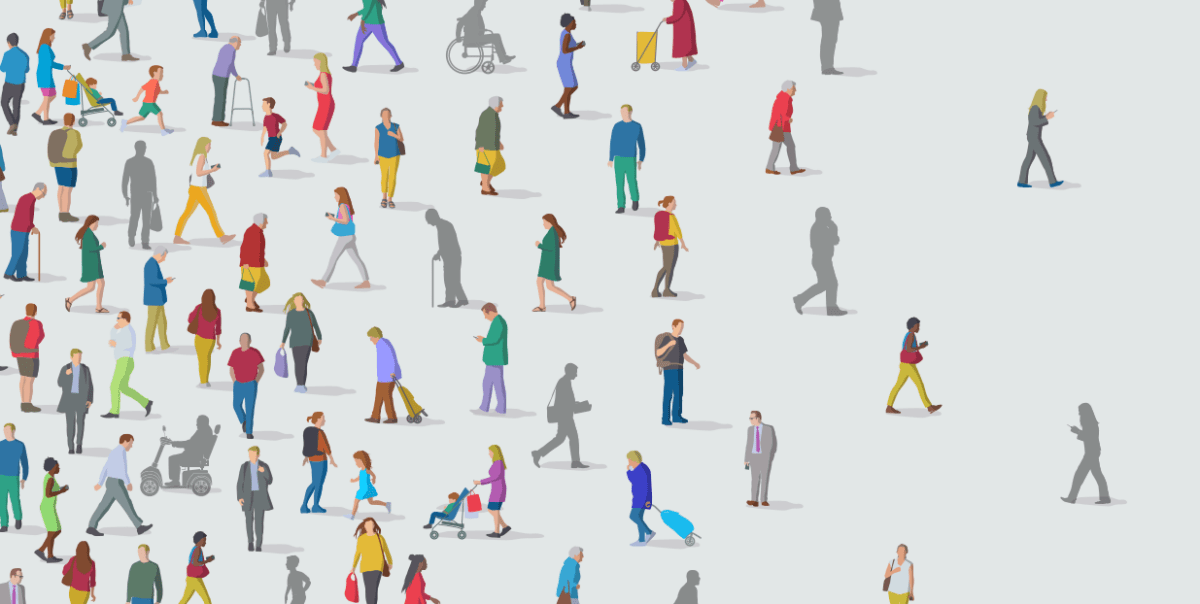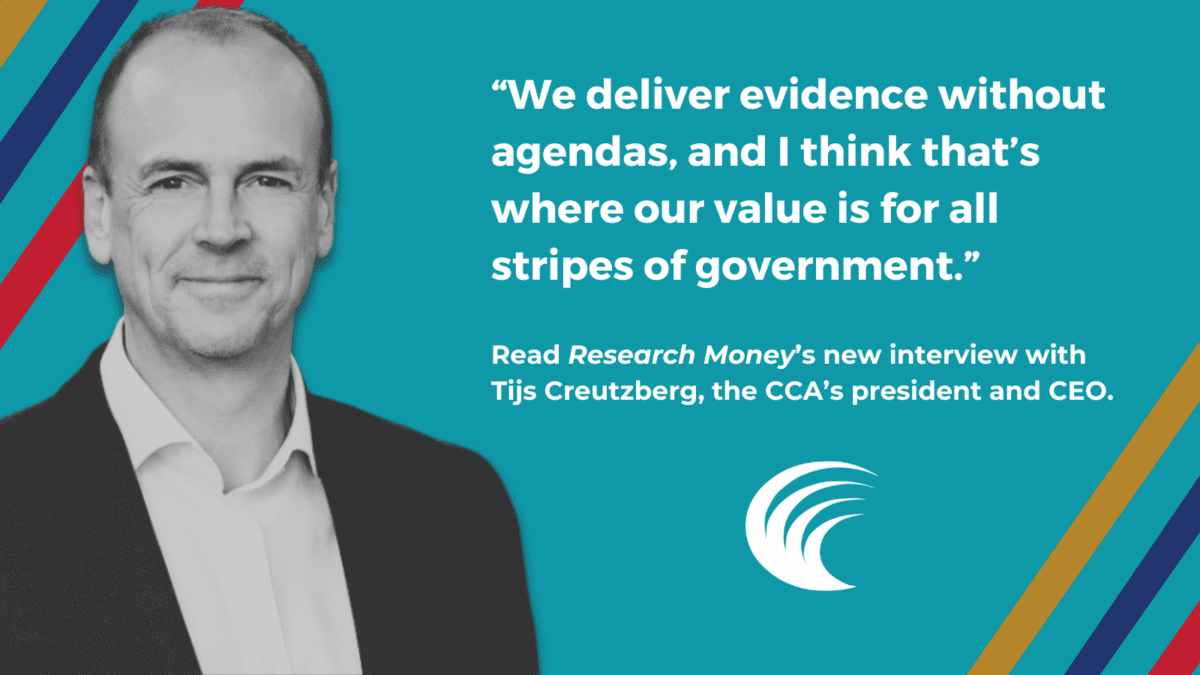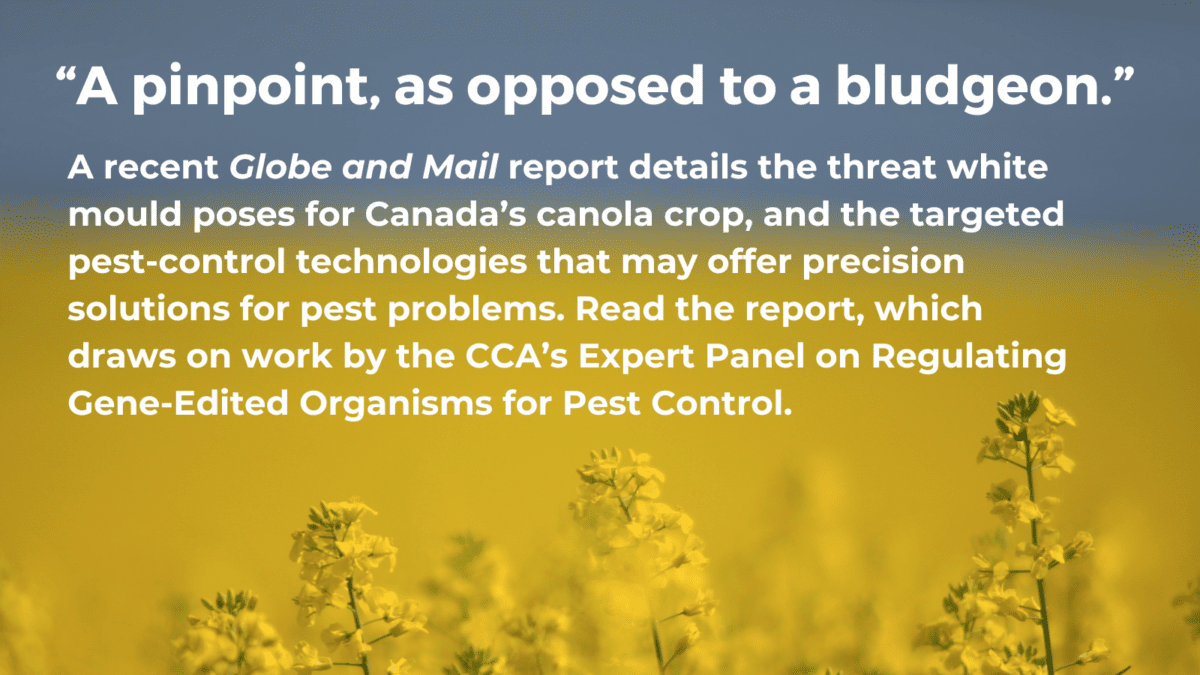
Welcome to The Advance, the newsletter of the CCA. Want to help us promote evidence-informed policy in the public interest? Feel free to forward this newsletter to a friend or colleague. If you haven’t subscribed yet, you can sign up here. Le français suit.
IN THIS EDITION:
- When Antibiotics Fail, five years on
- “We deliver evidence without agendas, and I think that’s where our value is for all stripes of government.”
- Readings on “citation success,” “diamond open access,” a causal relationship with annoyance, and more
- Precision approaches to Canada’s pest problems

When Antibiotics Fail, five years on
In September 2016, the United Nations (UN) declared antimicrobial resistance (AMR) “a fundamental, long-term threat to human health, sustainable food production, and development.” News reports featured dire estimates: “By 2050, drug resistance will kill more people each year than cancer and cost the world as much as $100 trillion in lost economic output,” an Associated Press story noted. At the time, no such estimates existed for Canada.
Following the UN announcement, the Public Health Agency of Canada asked the CCA to examine the socioeconomic impacts of antimicrobial resistance in Canada. In late 2019, the CCA released When Antibiotics Fail, a 237-page report from its Expert Panel on the Potential Socio-Economic Impacts of Antimicrobial Resistance in Canada. When Antibiotics Fail includes a quantitative economic model to explore the relationships between AMR, health, labour productivity, agriculture, and trade. Projections from this model, the panel noted, “are the first of their kind in Canada, and provide policy-makers and other stakeholders with credible estimates of the potential magnitude of AMR impacts over the next three decades.” Those estimates, noted Eric Meslin, CCA’s former president, “are alarming, and provide evidence to support decision-making.”
Ahead of the September 26 UN General Assembly high-level meeting on AMR, the CCA revisited When Antibiotics Fail and spoke with several of the experts who authored it. The report, says B. Brett Finlay, the panel’s chair, “makes a great point about the cost of doing nothing.”
Click here to explore our impact report for When Antibiotics Fail.

Readings
- For University Affairs, Maxime Bilodeau writes about “diamond open access,” an approach to research publishing that “enables researchers to publish in journals or other platforms free of charge using an open access license.” Proponents of diamond open access publishing include the recently announced Réseau québécois de recherche et de mutualisation pour les revues scientifiques.
- A study of “citation success” found that the students of highly cited scientists also tend to be highly cited—a dynamic similar to the so-called “Great Gatsby Curve,” according to a report from Science. “Status and resources trickle down from mentor to mentee, making it harder for those from a less fortunate background to progress—just as wealth passes down through generations.”
- The Dais’s latest online-harms survey finds that Canada is “squarely in the age of disinformation,” and reports an ongoing decline in public trust in social-media platforms. The think-tank also announced the launch of Canadian Democracy @ Work, an education initiative to “equip Canadian adults with an understanding of fast-moving developments in artificial intelligence, deepfake technology, and digital manipulation – and the relevance of these advances to their civic lives.”
- Cybele Negris, CEO and co-founder of webnames.ca, writes for The Future Economy about optimizing Canada’s economic growth at a time of rapid digital transformation. Negris served as a peer-reviewer on Waiting to Connect, a report by the CCA’s Expert Panel on High-Throughput Networks for Rural and Remote Communities in Canada.
- CTV recently profiled U-MAS—the UbiLab Misinformation Analysis System, based at the University of Waterloo and used to “track health misinformation patterns before they become potential catastrophes.” Timothy Caulfield, a member of CCA’s Expert Panel on the Socioeconomic Impacts of Science and Health Misinformation, told CTV that a “big-data approach” is “desperately needed” to help prevent damaging consequences.
- And a former environmental health professor at the University of Iowa drew on the CCA’s 2015 report on wind turbine noise to assuage concerns of related, detrimental health impacts. For its report, the CCA reviewed evidence for 32 health issues, largely finding inadequate evidence to establish causal relationships. However, as the professor noted in a letter to Iowa’s Clinton Herald newspaper, the CCA report did find sufficient evidence “to establish a causal relationship between exposure to wind turbine noise and annoyance.”
